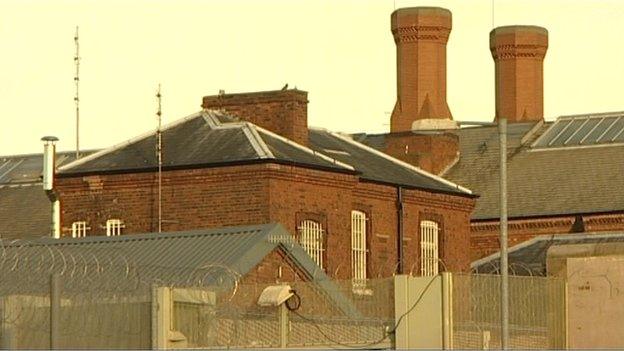Nottingham prisoner Shalane Blackwood's death 'could not be anticipated'
- Published
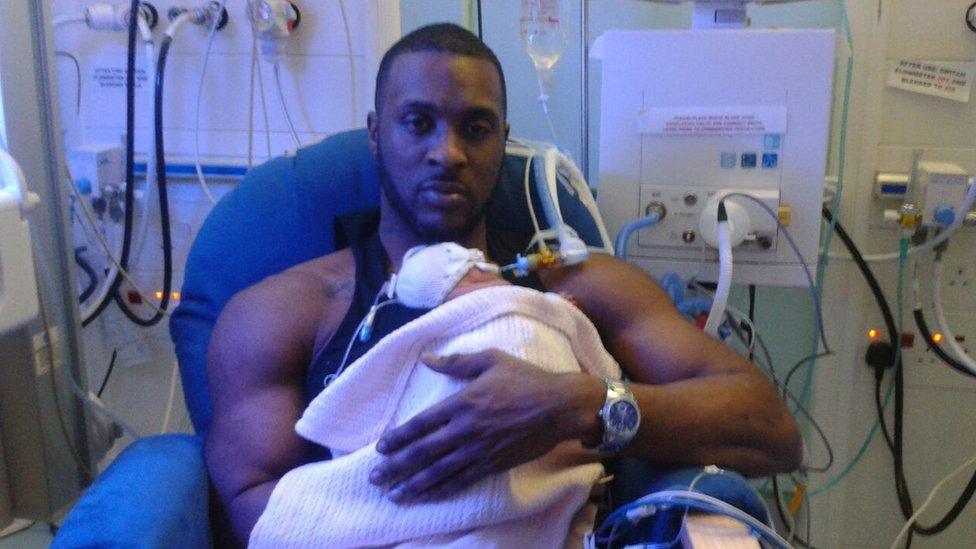
Shalane Blackwood became a father seven months before he died
A prisoner's bizarre behaviour meant his fatal illness could not be diagnosed, a report has concluded.
Shalane Blackwood grew increasingly erratic before his death from a ruptured stomach ulcer and at one point he was found naked, covered in custard.
An inquest concluded neglect by staff at Nottingham Prison "significantly contributed" to his death.
But the prisons ombudsman disagreed, external and said the illness would have been "very difficult" to diagnose.
The 29-year-old, from Derby, had been jailed for possession of a firearm and was on a licence recall when he died on 5 August in the prison's segregation unit.
He had been transferred from Liverpool in May to be nearer his family, including his newborn baby.
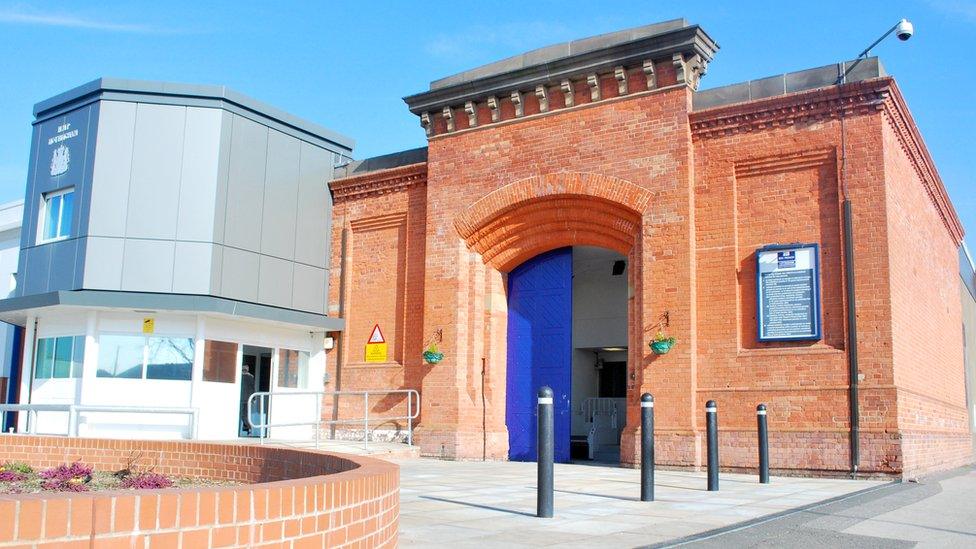
Shalane Blackwood, from Derby, was transferred to Nottingham Prison to be nearer his family
Ombudsman Nigel Newcomen found Mr Blackwood was suffering increasing mental health problems attributed to his use of legal highs.
He said: "His difficult behaviour and his frequent refusal to engage with healthcare staff meant that it was difficult to examine him physically, but healthcare staff had little reason to suspect that Mr Blackwood was suffering from a serious physical condition.
"We do not consider that they could have anticipated his sudden death."
The report revealed Mr Blackwood complained of stomach pains while in Liverpool, but did not report any problems in Nottingham.
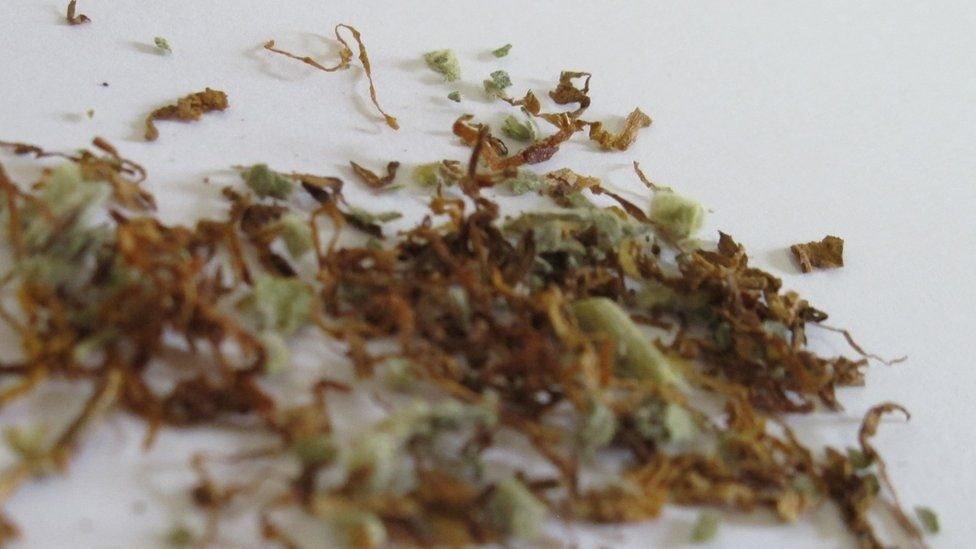
Shalane Blackwood admitted smoking a so-called legal high in the weeks leading up to his death
It details a catalogue of strange behaviour including going for several days without sleep, spending much of his time unclothed, believing he was God and thinking someone was trying to poison him.
According to investigators, at one point he spent 48 hours "naked and covered in custard".
On several occasions he refused food, drink and prescribed medication and would not let health professionals examine him.
A week before he died, a psychiatrist concluded his behaviour was because of his use of a new psychoactive substance, and he admitted smoking "Mamba".
Staff made a transfer request to a mental health hospital, which would have allowed for compulsory treatment of Mr Blackwood, but this was not completed before he died.
Mr Newcomen made several criticisms and recommendations including questioning the use of the segregation unit, the decision that four officers being needed to enter his cell and the delay in telling his family.
- Published10 May 2016
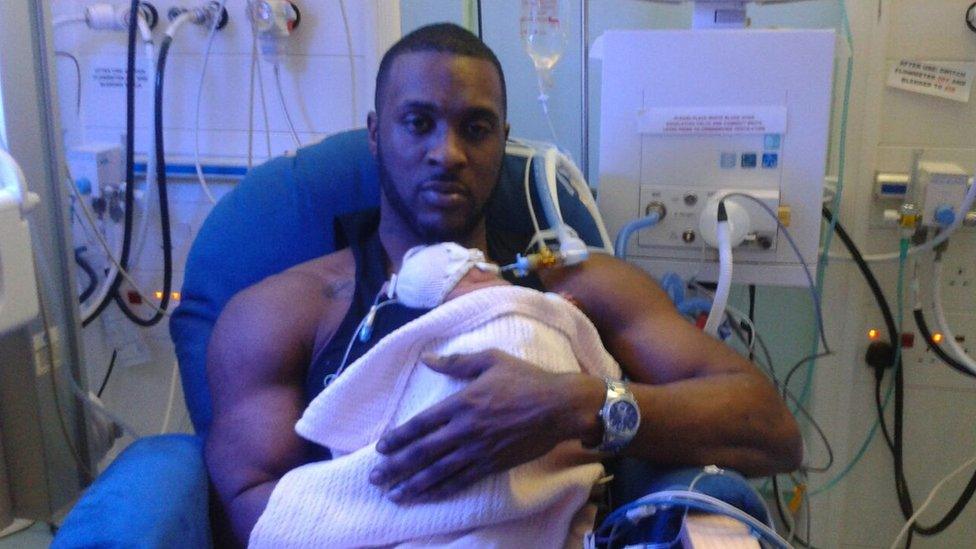
- Published11 August 2015
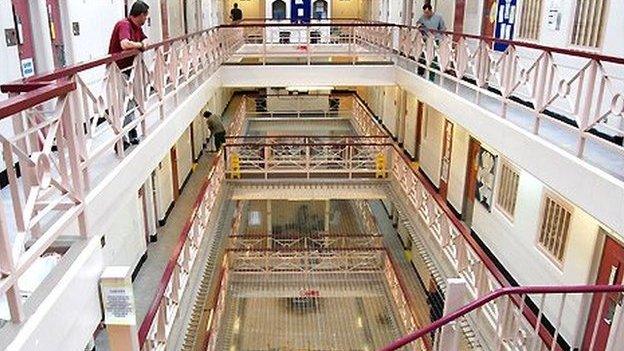
- Published10 February 2015
